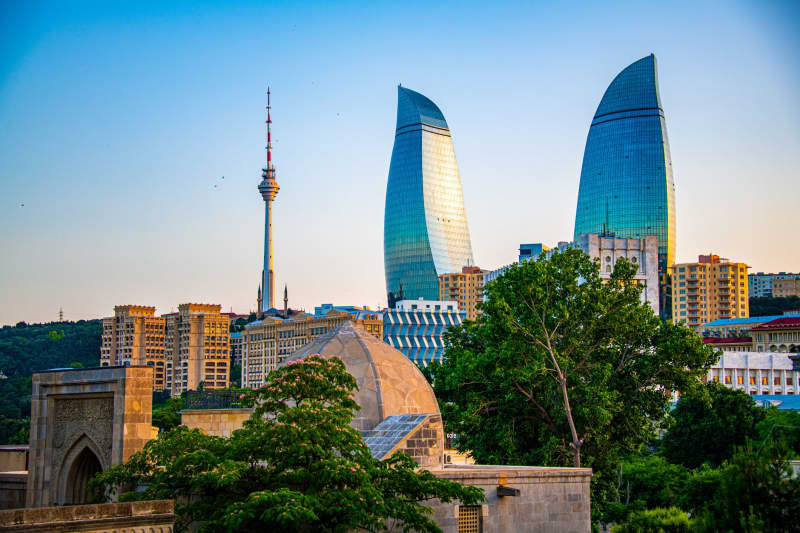From ‘carbon bombs’ to ‘coolcations’: new language of climate change
From ‘carbon bombs’ to ‘coolcations’: new language of climate change
03 April 2024
By Katie Phoenix

The language used to talk about climate change by individuals, organisations and the media is ever evolving.
As we continue to learn more about the effects of the climate crisis, witness its impacts, and have more discussions around potential solutions, the language we use to describe it is also changing.
In this article we explore some of the newly emerging words that our Cambridge Dictionary lexicographers have discovered recently.
New words
You have most likely heard of the term ‘global warming’ to describe rising world temperatures, but what about ‘global boiling’?
In July 2023 the UN secretary general, António Guterres, said "the era of global boiling has arrived.”
In August 2023, over 50% of voters on the Cambridge Dictionary New Words blog voted in favour of adding this new term to the dictionary.
Cambridge Dictionary editors monitor new terms like this for possible inclusion in the Dictionary if they begin to be widely used.
global boiling noun
A very fast and sharp increase in world temperatures caused by gases such as carbon dioxide that are collecting in the air around the earth and stopping heat escaping into space
Some of the emerging terms that have featured on the New Words blog recently relate to extreme weather events and how people are responding. Are you planning on taking a ‘coolcation’ this year or heading to a ‘cooling centre’ to escape a ‘heat storm’?
coolcation noun
a holiday in a place where the weather is not very warm, usually because you do not want to go somewhere that has become too hot because of climate change
heat storm noun
a period of extremely hot weather and high humidity that lasts several days
cooling centre noun
a place such as a library, museum or other public building where someone can go to cool down in periods of severe hot weather, run as a public service and providing air conditioning, cold water and other facilities

Another term reveals concerns around fossil fuel extraction projects ‘that could destroy humanity’s last chance to stop the climate crisis’:
carbon bomb noun
a project to extract a fossil fuel from the ground that would cause carbon dioxide emissions of more than one gigatonne
Some individuals and communities living in areas facing sudden-onset climate disasters or climate change-induced shifts in environmental conditions might experience forced displacement or decide to move away. The term ‘climate mobility’ is used to describe this.
climate mobility noun
moving away from an area affected by climate change to live somewhere else

Climate disasters or climate change-induced shifts in environmental conditions can force people to move away from their homes
Climate disasters or climate change-induced shifts in environmental conditions can force people to move away from their homes
Last year several new climate-related entries also made their way into the Cambridge Dictionary such as:
hypermiling noun
the use of particular driving methods in order to use as little fuel as possible
xeriscaping noun
the practice of designing a garden, park, etc. in such a way that it needs as little water as possible
atmospheric river noun
a long, narrow band of water vapour (= water in the form of a gas) in the atmosphere that contains a large amount of water and can cause storms and heavy rain
Glossary of popular climate change terms
Whether it is during big summits such as the annual UN climate change Conference of the Parties (COP), or in news reports, we often hear many different climate change terms - but what do they all mean?
Explore our glossary of some of the most popular terms.
biodiversity
the number and types of plants and animals that exist in a particular area or in the world generally, or the problem of protecting this
carbon footprint
the amount of greenhouse gases released into the atmosphere by an individual or specific group, event, or product; measured in tonnes. The most important and frequently referenced greenhouse gas is carbon dioxide. Most typically measured as how many tonnes of carbon dioxide are emitted per year
carbon literacy
an awareness of the carbon dioxide costs and impacts of everyday activities, and the ability and motivation to reduce emissions, on an individual, community and organisational basis
source: The Carbon Literacy Project
carbon neutral
if an organization, activity, etc. is carbon neutral, it does not add to the total amount of carbon dioxide in the atmosphere, for example by doing things such as planting trees in order to remove as much carbon dioxide as it creates
carbon-zero
if a company or an organization is carbon-zero, it does not release any carbon dioxide into the environment or it removes the same amount of carbon dioxide from the environment as it puts into it
circular economy
A systemic approach to economic development designed to benefit businesses, society, and the environment. In contrast to the ‘take-make-waste’ linear model, a circular economy is regenerative by design and aims to gradually decouple growth from the consumption of finite resources.
climate change
changes in the world's weather, in particular the fact that it is believed to be getting warmer as a result of human activity increasing the level of carbon dioxide in the atmosphere
deforestation
the cutting down of trees in a large area, or the destruction of forests by people
emissions
any release of gases such as carbon dioxide which cause global warming, a major cause of climate change. These can be small-scale in the form of exhaust from a car journey or methane from a cow (which added together have a big impact), or larger-scale such as those from coal-burning power stations and heavy industries.
energy transition
a pathway toward transformation of the global energy sector from fossil-based to zero-carbon electricity by the second half of this century
source: The International Renewable Energy Agency
environmental aspects
an element of an organisation's activities or products or services that interacts or can interact with the environment
environmental management system
a system that a company uses for making certain that it does everything possible to protect the environment and obeys all laws relating to the environment
feedback loop
In a feedback loop, rising temperatures on the earth change the environment in ways that affect the rate of warming. Feedback loops can be positive (adding to the rate of warming), or negative (reducing it). For example, as the Arctic sea-ice melts, the surface changes from being a bright reflective white to a darker blue or green which allows more of the sun's rays to be absorbed. Less ice means more warming and more melting.
geoengineering
the study and activity of finding ways to change the earth's atmosphere in order to reduce global warming (= the gradual increase in world temperatures):
green skills
Technical knowledge, expertise and abilities that enable the effective use of green technologies and processes in professional settings. They draw on a range of knowledge, values, and attitudes to facilitate environmentally sustainable decision-making at work and in life.
source: United Nations
greenhouse gases (GHG)
a gas that causes the greenhouse effect, especially carbon dioxide
greenhouse gas protocol
A global standardised framework for businesses and governments to measure and manage climate-warming emissions. Commonly used by countries participating in the Paris Agreement, adopted within the United Nations Framework Convention on Climate Change (UNFCC) in December 2015.
global warming
a gradual increase in world temperatures caused by gases such as carbon dioxide that are collecting in the air around the earth and stopping heat escaping into space
greenwashing
behaviour or activities that make people believe that a company is doing more to protect the environment than it really is
Intergovernmental Panel on Climate Change (IPCC)
The IPCC is a scientific body established by the United Nations and the World Meteorological Organisation. Its role is to examine and assess the latest scientific research into climate change. Its report in 2018 warned that the rise in global temperatures should be limited to 1.5C to avoid dangerous impacts.
just transition
greening the economy in a way that is as fair and inclusive as possible to everyone concerned, creating decent work opportunities and leaving no one behind
source: The International Labour Organization (ILO)
loss and damage
The destructive impacts of climate change that cannot be or have not been avoided by what is known as ‘mitigation’ (reducing greenhouse gas emissions) or ‘adaptation’ (adjusting to and building resilience against current and future climate change impacts).
source: Chatham House.
offset/offsetting
This is a process of reducing emissions of carbon dioxide or other greenhouse gases made in one place, to compensate for emissions made elsewhere. For example, a company could choose to offset the carbon it emits running a fleet of petrol cars by planting enough trees to absorb the equivalent level of carbon.
Paris Agreement
The central aim of the Paris Agreement is to strengthen the global response to the threat of climate change by keeping a global temperature rise this century well below two degrees Celsius above pre-industrial levels and to pursue efforts to limit the temperature increase even further to 1.5 degrees Celsius.
source: United Nations
rapid decarbonisation
Cambridge Dictionary defines ‘decarbonisation’ as ‘the process of stopping or reducing carbon gasses, especially carbon dioxide, being released into the atmosphere as the result of a process, for example the burning of fossil fuels.’ So to do this ‘rapidly’ means in a short space of time.
runaway climate change
This describes how climate change may suddenly get worse after passing a 'tipping point', making it even harder to stop or reverse. In 2018, the IPCC said that global emissions must be reduced by 45 per cent by 2030, and to net zero by 2050 to have a 50 per cent chance of limiting temperature rises to 1.5 Celsius this century.
scaling climate action
The process of expanding and strengthening efforts to address the urgent challenges of the climate crisis. For example, organisations might look to set more ambitious environmental targets or embrace innovative technologies.
science-based targets
Targets adopted by companies to reduce greenhouse gas emissions are considered 'science-based' if they are in line with what the latest climate science says is necessary to meet the goals of the Paris Agreement.
More stories

From ‘carbon bombs’ to ‘coolcations’: new language of climate change
The language used to talk about climate change by individuals, organisations and the media is ever evolving. We explore some of the newly emerging words that our Cambridge Dictionary lexicographers have discovered recently.





